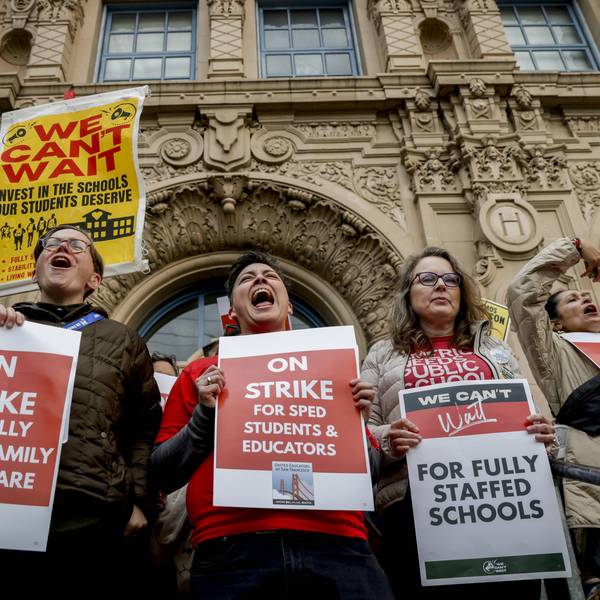After negotiations that had stretched on since last May, nearly 30,000 lecturers and professors in the California State University system were prepared this week to go on strike for five days—but the work stoppage only took a matter of hours to convince the institution to reach a tentative deal with the educators.
The agreement, which members of the California Faculty Association (CFA) are expected to vote on in the coming weeks, includes an immediate 5% pay raise for all CSU faculty that will be applied retroactively to July 1, 2023. Another 5% raise will go into effect this coming July.
The union, which represents 29,000 faculty members at CSU's 23 campuses, said ahead of the walkout that educators' salaries have not kept up with the high cost of living in California and have left some teachers struggling with housing and food insecurity.
Josh Grisetti, a musical theater professor at California State, Fullerton, pointed out that full-time faculty members' pay went up by an average of 22% from 2007-22, while the chancellor's salary increased by 43% over that period and the presidents of each campus have seen their pay go up 40-70%.
"Well, maybe we're in a budget crisis and we can't afford to pay anybody except for the top brass," said Grisetti in a video he posted on social media. "Except, we have a nearly $2 billion surplus in the Cal State University system right now... Where is that going? It's being invested into the stock market. They would rather keep investing in the stock market than pay their faculty."
The Service Employees International Union (SEIU) compared CSU's budget approach to "fighting to turn the California State University into a hedge fund where education is merely a side project," and expressed solidarity with the faculty.
If the tentative deal is approved by CFA members, the lowest-paid educators in the system will see their salary floor raise by $3,000. The agreement also increases paid family leave from six weeks to 10.
"In case anyone forgot, strikes work!" said the CFA after the deal was reached. "When we fight, we win!"
The CSU faculty members were just the latest unionized education staffers to approve a work stoppage in order to push for fairer working conditions. In November, about 48,000 graduate student researchers and other academic workers in the University of California system staged what was called "the largest higher education strike in U.S. history." The CSU strike was reportedly the largest strike ever by faculty members.
About 9,000 Rutgers University educators also held a walkout last summer after nearly a year of contract negotiations, noting, as CSU faculty did, that the university had a considerable surplus of more than $800 million and could afford to fairly compensate professors.
Antonio Gallo, associate vice president of lecturers at CSU, called the deal reached on Monday night "historic" and said it was won "because of members' solidarity, collective action, bravery, and love for each other and our students."
"This deal immensely improves working conditions for faculty," he said, "and strengthens learning conditions for students."




